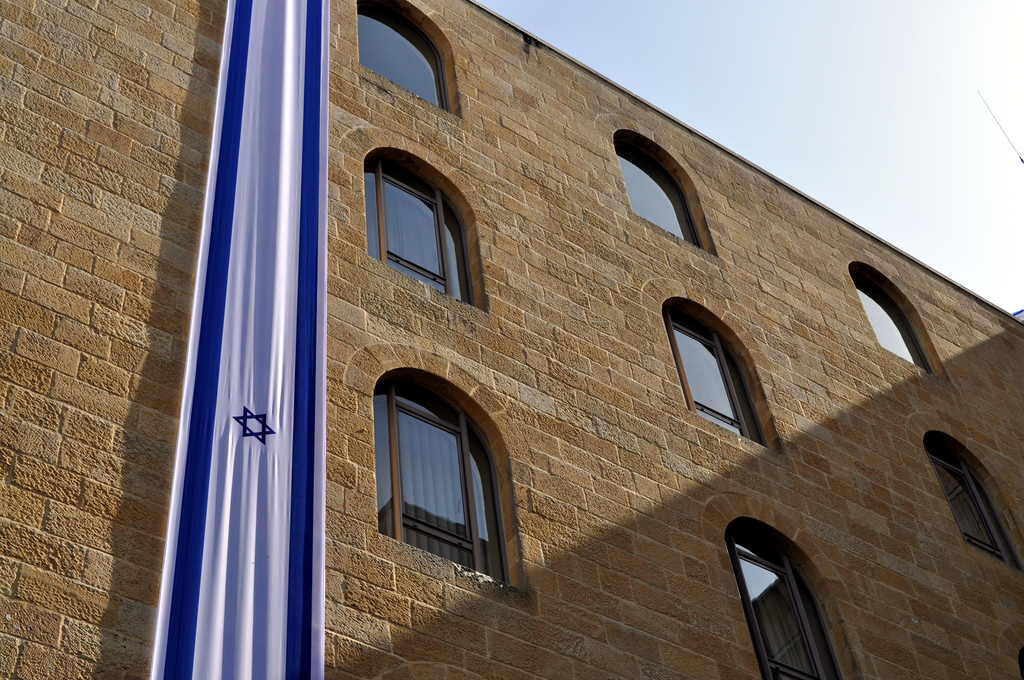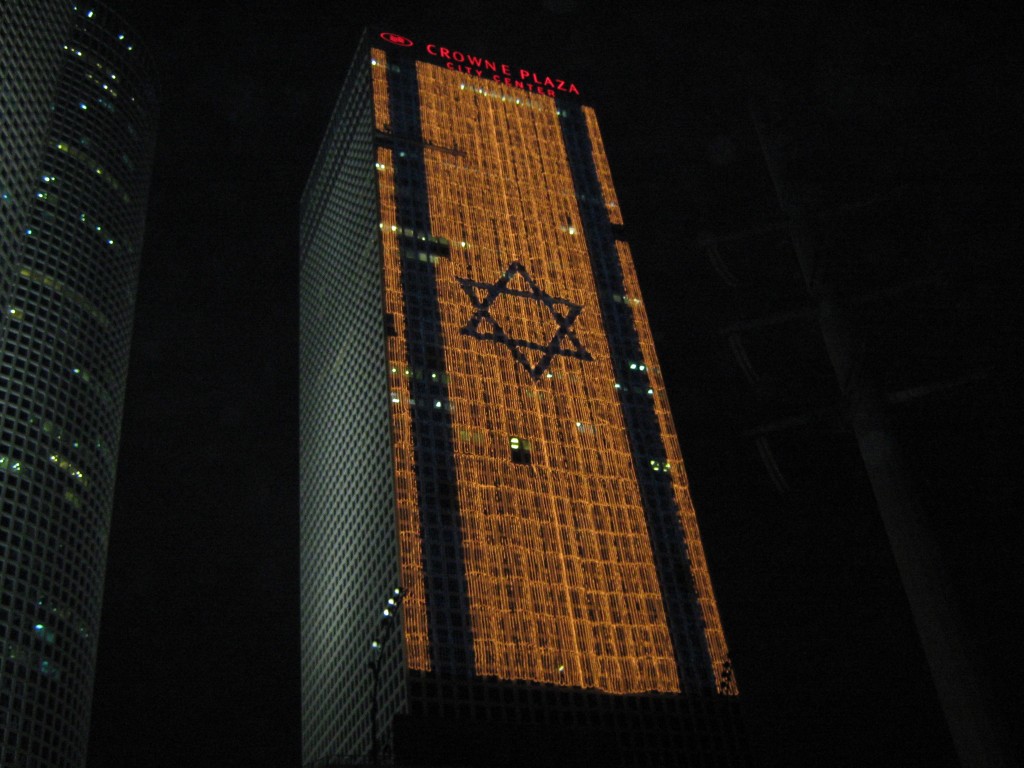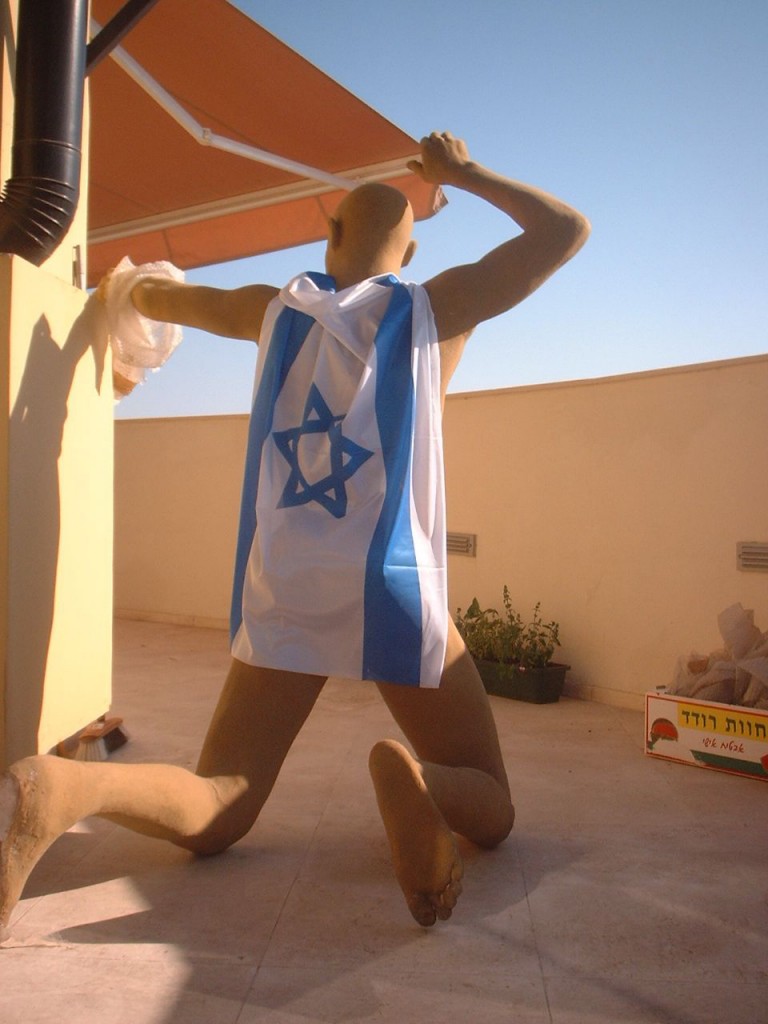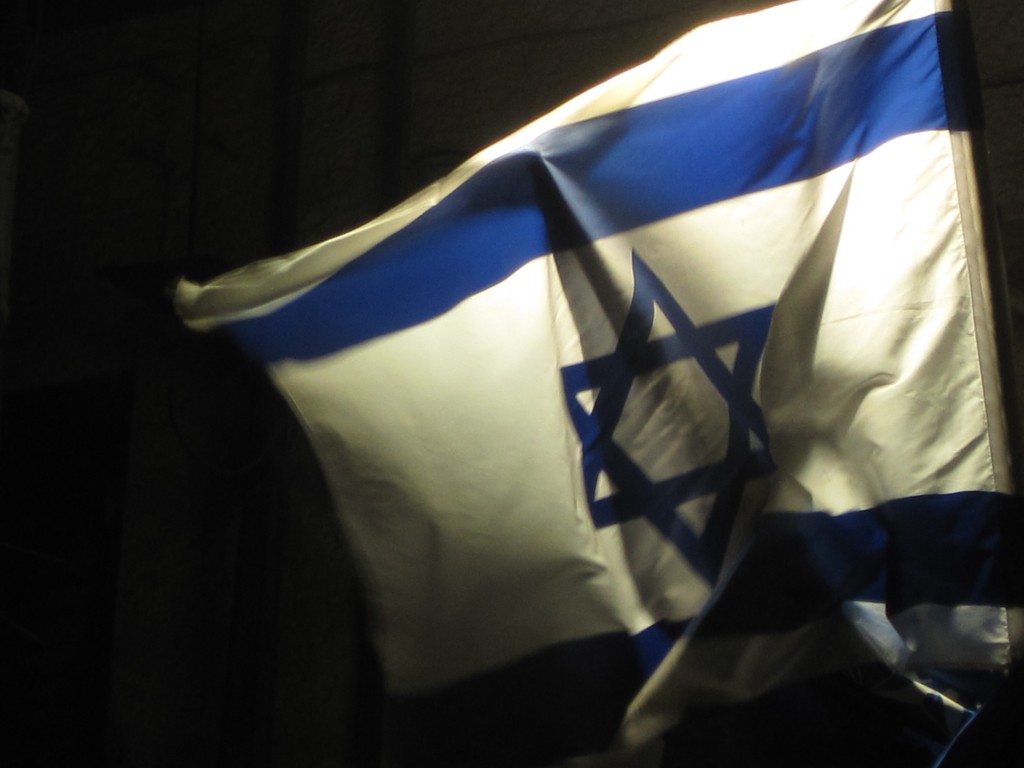A besotted poet, a melody everyone thinks is ripped off, and an ancient people looking for a home; all add up to the story of one of the most remarkable, powerful national anthems on Earth.
Precisely 80 years ago, the 18th Zionist Congress adopted the song “Hatikva,” literally “The Hope,” as the anthem of their movement. Today, it is the national anthem of the State of Israel, and for most Israelis, it is like any other anthem: They know its lyrics and melody by heart and barely give it a thought, except perhaps for a swell of emotion when it plays at IDF induction ceremonies.
All national anthems suffer in this way. Endlessly repeated at sports events, official ceremonies, university commencements, and more, they are everywhere and nowhere, having become little more than cultural white noise.
But while this numbness-from-overkill is to be expected for other national anthems, it is something of a tragedy in the case of “Hatikva.” Put simply, the song deserves better, because it is unique among national anthems in its composition, its quality, and its lasting power. And this power lies not so much in any chauvinist attachment to it, but rather in the song itself. Indeed, it is probably one of the only anthems that, had it not become officially sanctified, would still have an aesthetic life of its own.
Few Israelis today know much about the song—which is, again, normal for any country. Out of what was originally a nine-stanza poem, only the first is ever sung, but that stanza alone says a great deal about what makes “Hatikva” a fascinating anomaly among national hymns. The Knesset’s official translation reads:
As long as in the heart within
The Jewish soul yearns
And toward the eastern edges, onward
An eye gazes toward Zion
Our hope is not yet lost
The hope that is 2,000 years old
To be a free nation in our land
The land of Zion, Jerusalem
Two unusual things strike the attentive listener: There is no hint of martial glory; and the lyrics are melancholy.
The first is practically unheard of among national anthems. America’s “Star-Spangled Banner,” with its “rockets’ red glare/The bombs bursting in air,” is unabashedly a battle hymn. Egypt’s national anthem proclaims, “My purpose is to repel the enemy.” Ireland’s pledges “In Erin’s cause, come woe or weal/’Mid cannon’s roar and rifles’ peal/We’ll chant a soldier’s song.” Sudan’s is even more belligerent, declaring “We are the soldiers of God, the soldiers of our homeland/We never betray the call for sacrifice/Death, we defy at adversity/Glory, we buy with the highest price.” Perhaps the most strikingly martial of all is the French “La Marseillaise,” which few realize is practically bloodthirsty in its exhortations. “To arms, citizens!” it howls, “Form your battalions!/We march! We march!/Let impure blood/Water our furrows!”
“Hatikva” contains nothing like this. There is not a trace of triumphalism, belligerence, or violence of any kind. It is, in fact, a song of yearning. Put simply, unlike perhaps any other national anthem, there is something extraordinarily sad about “Hatikva.” It is about the weight of history, loss and suffering, and the desire to overcome. The “hope” of the title is not for victory in war or personal glory and sacrifice, but for a simple end to a state of perpetual grief and a sense of incompleteness, of missing something essential. It reminds one of Theodor Herzl’s final summation in The Jewish State: That the ultimate goal of a Jewish commonwealth is for the Jews to simply live a happy life; a life that, in exile, is impossible.
This is underlined by the song’s music. Again unlike most anthems, the melody of “Hatikva” is pretty yet remarkably unobtrusive; as such, it suits the lyrics almost perfectly. The musical accompaniment is deceptively melancholy, as it appears to be set in a minor key, but in fact rides the edge between major and minor throughout, occasionally making a slow turn into a “brighter,” major-key melody. The song’s tour de force, however, which is so subtle it can easily go unnoticed, is the moment when it decisively crosses the line from minor into major. It does so only once, on the line “To be a free nation in our land,” which is, of course, the “hope” of the song’s title; thus embodying in music the same moment of redemption evoked in the lyrics.
Besides the normal indifference born of endless repetition, this may be another reason why “Hatikva” has largely passed out of Israel’s cultural consciousness—in an age of irony, it wears it heart on its sleeve. While it is not, as it is often accused of being, particularly romantic, it is unabashedly sincere. And this, in our time, is usually considered cringeworthy, even contemptible. In a sense, however, this is another of the song’s virtues: It reminds us that irony is not everything, and there is still a place, if not for sentiment, then at least for sincerity.
The song’s total lack of irony is ironic in itself, since its origins are so convoluted and unhinged that they go beyond satire. No master of black comedy could have come up with a more unlikely origin for a national anthem, let alone one as high-minded and emotional as “Hatikva.”
As a 1998 article by Carl Schrag outlines, the song’s birth is grotesquely amusing. It is based on a poem called “Tikvatenu” (“Our Hope”) by Naphtali Herz Imber, a late-nineteenth century rake who divided his time between fervent Zionism and drinking his way across most of Europe. Writer Cecil Bloom describes Imber as a classic bohemian adventurer/con man who professed to have studied Kabbalah as a child prodigy, claimed that “he spoke eleven languages” in order to become “a tutor to Baron Waldberg’s family,” fell in love with a woman who “never returned his advances although her sexual habits were said to include giving herself to Druze and Arabs for the sake of their spiritual redemption,” taught Hebrew to the great Jewish writer Israel Zangwill even though “Zangwill did write in his diary that Imber was a ‘scoundrel, a fraud, and immoral’”; and was so well-known for his heroic consumption of alcohol that “one newspaper captioned its death notice ‘On Simchat Torah all shikorim [drunkards] are sober.’”
He did manage to spend a brief period in then-Palestine before his heroic consumption of alcohol finally killed him in 1909, but for the most part he remained a nomadic wastrel who appears to have enjoyed himself immensely while engineering his premature demise. He was also, it seems, somewhat deranged, plagued by delusions in which, as Schrag puts it, he “saw himself—not Theodor Herzl—as the true spiritual father of Zionism,” and occasionally proclaimed, “I am the origin of the Zionist movement!”
The poem did not become a song, however, until it passed out of the hands of its creator; and even then, it went through several completely different settings before finally coming into the possession of the Jews of pre-state Rishon Letzion, who were apparently the first to sing it in its current form.
No one knows precisely where the melody came from. Schrag writes that “Some trace it to ‘The Bohemian Symphony,’ by the Czech composer Smetana, but others say it is based on the Sephardic melody for Psalm 117 in the Hallel service. Still others say it bears a striking resemblance to a Romanian folk song.” Any or all of these could be partly true. There is no doubt that the melody sounds distinctly Eastern European, although it is also somewhat akin to traditional Jewish liturgical music, which has certain similarities, such as the subtle interchange between major and minor keys.
Whatever its origins, however, the reworked and renamed “Hatikva” became hugely popular, embraced as a symbol of Jewish national identity well beyond the borders of pre-state Palestine. A report in the Times of Israel cites “a BBC recording of Bergen-Belsen concentration camp survivors” singing the song “shortly after their liberation in 1945,” as well as a rendition by the famous Jewish-American singer Al Jolson in 1948.
As an article by James Loeffler points out, however, the song was more a popular than an official success. Herzl himself disliked it even before it was set to music, partly due to Imber’s dubious repute; religious Zionists strongly objected to the lack of any mention of God; and, conversely, “socialist Zionists denounced the poem for its allegedly religious, messianic overtones, owing to the reference to an ancient biblical promise of Jewish return.” Perhaps because of these various controversies, the Israeli establishment appears to have always regarded the song with a certain amount of skepticism, and despite being played at practically every official function imaginable for decades, it was not formally declared Israel’s national anthem until 2004.
Indeed, possibly the most significant testimony to the song’s lasting power is that it remains controversial to this day among those who pay it any attention, arousing the strongest emotions among both supporters and detractors.
In particular, and unsurprisingly, post-Zionists loathe the song, with its unreservedly Zionist and Jewish sentiments. They tend to view it as chauvinist and arrogant, despite the complete lack of such qualities in the song itself. Jews of Middle Eastern origin have a somewhat stronger case, given that many of them did not gaze “toward the eastern edges… toward Zion” but in quite the opposite direction.
The most strident objections come from Israeli-Arabs, which is also not surprising, since the whole point of the song is the Jewish people and their longing for a homeland. Asserting that it can have little or no relevance to an Arab listener, many simply refuse to sing it, including those who hold official positions in the Israeli government. Afu Aghbaria, an Arab Member of Knesset from the communist Hadash party told YNet that “The symbols of the state must connect with the whole country and not just one part of it. This song just doesn’t represent me.” Following a major controversy over an Arab minister’s refusal to sing the song, another MK, the outspoken Ahmed Tibi, simply said, “Hatikva’s words cannot be sung by any Arab citizen.”
It seems highly unlikely, however, that “Hatikva” will ever be replaced or rewritten, as some have proposed. Israelis may be largely indifferent to it now, but faced with the threat of its loss, they would not likely remain silent. Should Arab objections become strong enough, the non-Jewish minorities would more likely adopt their own unofficial anthem.
These ongoing controversies, however, do say something significant about the world’s continuing discomfort with Jewish sovereignty. That is, with the idea that the Jews are a group of human beings with the same rights to self-determination as any other group of human beings. Because perhaps the only aspect of “Hatikva” that is not unusual is its particularism. Indeed, the entire point of a national anthem is to embody something of the state that it represents to the world, which is itself usually the political embodiment of a specific people. The anthems of Arab, European, African, and Asian states do so, and there seems little reason why a Jewish state should not do the same; with proper respect for the desire of its largest minority not to participate should they wish it.
It is also precisely this quality of embodiment that makes “Hatikva” all but impossible to replace. And strangely enough, this may be a good thing for both Jewish and non-Jewish Israelis; because now that the hope the song expresses has been realized, “Hatikva” today has become something different but perhaps even more important: It stands as a perpetual reminder of where the State of Israel came from, similar to God’s commandment to the Jews not to forget that they were once slaves in Egypt, or the Haggadah’s declaration that “my father was a wandering Aramean.” It is always there to remind Israelis of the weight of their own melancholy history, with its experience of weakness and homelessness, and warns them not to fall into the idolatry of strength and power that characterizes so many other national anthems. By expressing a very particular experience of longing and redemption, rather than a vague and ephemeral salute to these universal emotions, “Hatikva” can speak for everybody; and so can its reminder that there is strength in melancholy and remembrance, because it is only through facing up to the depredations of the past that we can truly begin to hope.
![]()
Banner Photo: anonymouscreative.deviantart.com









